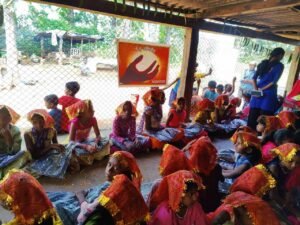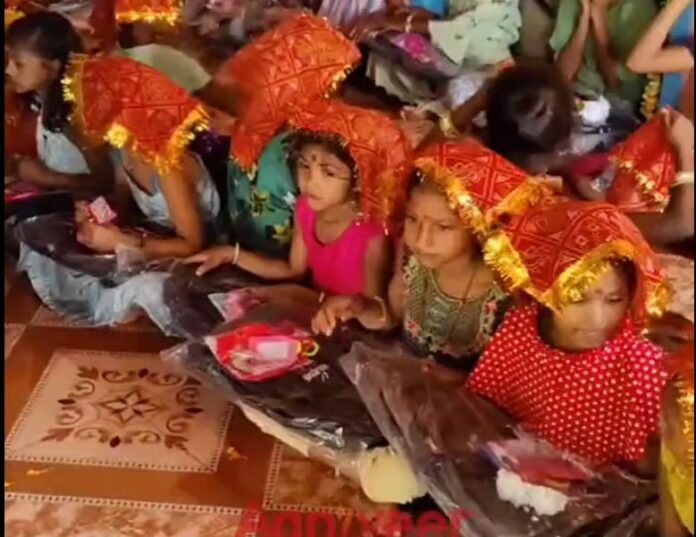There’s a quiet magic to Kanya Pujan—a tradition where little girls, between the ages of 2 and 10, are welcomed, worshipped, and celebrated as living embodiments of the goddess Durga. For a few beautiful moments, the world pauses to acknowledge something profound: the divine lives in the innocent.
During festivals like Navratri or Ashtami, families invite young girls into their homes, gently wash their feet, feed them lovingly cooked halwa, puri, and chana, and seek their blessings. It’s not just ritual—it’s a celebration of pure, untamed grace.

Picture a grandmother dabbing alta on tiny feet while a girl squirms with giggles. Or a father explaining why today, she is a goddess. These moments make the sacred feel personal, grounding timeless beliefs in everyday tenderness.
What’s powerful about Kanya Pujan is the message it sends: you are enough. These girls aren’t honored for being smart, pretty, or polite—they’re celebrated simply for being. In a world that often asks too much of girls, this is a radical act of reverence.
And the impact lasts. Many women remember the joy of being worshipped as a child—not for what they did, but for who they were.
Kanya Pujan gently reminds us: the divine doesn’t just reside in temples. It laughs, plays, and shines in the faces of children. All we have to do is stop long enough to see it.


